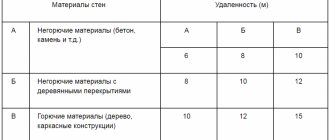Legislation and current regulations
- Law on Consumer Protection:
- Article 18 - steps taken by citizens in case of purchasing goods of inadequate quality;
- Art. 20 — rules for eliminating identified deficiencies;
- Art. 23 - penalty.
- Federal Law No. 214 “On Shared Construction”, Art. 7 lists the guarantees provided for in the remote control agreement.
- Civil Code of the Russian Federation:
- Art. 469–478 - about the quality of goods, warranty periods, completeness;
- Art. 722–724 - periods of discovery of deficiencies in the contractor’s work;
- Art. 754–757 - guarantees, deadlines for identifying deficiencies in the work of a construction contract, liability.
What are the developer’s warranty obligations after delivery of the house?
The law forces the developer to deliver a new building in accordance with current standards:
- equity participation agreement;
- project of a building under construction;
- urban planning, technical and engineering standards.
For violation of established standards during the construction of an apartment building (MCD), the developer must be held accountable in accordance with the law, and eliminate any deficiencies that appear on his own and at his own expense.
Not all defects can be detected during the delivery process. Example: you bought a house in the summer, but in the winter it turned out that the house is not heated and the walls are frozen. Or a few months after moving in, the elevator stopped working and the roof started leaking. If the construction company’s fault is obvious, it will pay for the repairs.
Dear readers! To solve your problem right now, get a free consultation
— contact the lawyer on duty in the online chat on the right or call: +7 (499) 938 6124 — Moscow and region.
+7 (812) 425 6761 — St. Petersburg and region. 8 (800) 350 8362 - Other regions of the Russian Federation You will not need to waste your time and nerves
- an experienced lawyer will solve all your problems!
For your information! The contractor is also responsible for the activities of subcontractors. These are all companies involved by the developer in construction work.
The client must be provided with technical documentation for the residential premises. It includes:
- rules of safe operation;
- service life of the object;
- information about finishing elements;
- rules for the use of engineering systems and other structures.
Important! You cannot sign documents for the acceptance and transfer of residential premises if there are deficiencies. This will mean that the shareholder agrees with everything. The developer is not responsible for obvious defects that the client knew about and did not demand their elimination before signing the equity participation agreement (DPA).
What does it cover?
There are three areas that the warranty covers:
- Building and structural elements.
- Engineering systems.
- Work carried out.
Popular defects that residents of new buildings encounter:
- cracks on the walls;
- ceilings sag;
- the elevator often breaks down;
- pipe burst;
- Electricity problems;
- the cladding falls off, the walls become wet;
- defects in doors and windows;
- the house is cold;
- the roof is leaking;
- the operation of supply substations is disrupted;
- poor quality fittings;
- walls and ceilings freeze;
- fungus, leaks, mold;
- the functioning of ventilation is impaired;
- use of substandard materials in the construction process and interior decoration;
- uneven jambs.
This is not a definitive list.
What is not guaranteed?
Correcting defects is not always the responsibility of builders. After the property is handed over, the management company (MC) or homeowners association (HOA) monitors the safety of the property and compliance with the rules for the use of house structures and technical equipment.
The developer is released from warranty obligations in the following cases:
- Natural wear and tear of the guaranteed object - depreciation of real estate, components and structures.
- Violations of the rules of operation (subject to receipt of instructions from the developer) of both private and public property.
- Ignoring the rules for connecting and using household appliances, plumbing, heating, electricity, water.
- When the warranty period has expired.
- If the deficiencies appeared as a result of natural disasters.
- If the emergency situation was provoked by residents, third parties, representatives of the management company.
- Other force majeure situations.
Attention! The construction company only compensates for its deficiencies. After putting the property into the hands of residents, responsibility for proper operation and timely repair work (including major repairs of apartment buildings) lies with the management company or HOA. Their rights and obligations are listed by the Housing Code of the Russian Federation.
For example, a new owner installed new plastic windows during the warranty period. If there is something wrong with them, claims must be made to the organization that installed them.
Procedure for filing a claim
First of all, when receiving a claim, the developer checks whether it falls under the responsibility of the management company, so it is recommended to pay attention to this point before submitting the document.
The document is drawn up in writing. There are several ways to deliver it to the developer:
- bring it in person , and you must register your copy in the office;
- send a registered letter with notification;
- send by email.
How many years does the warranty period last?
The total duration of the developer's liability is 5 years for apartment buildings and 3 years for technical equipment. The warranty period may be extended for individual structures, elements and systems. This is discussed in a separate clause in the share participation agreement.
The warranty period begins from the day you receive ownership of the apartment or from the moment you move into it.
Important! The validity of the guarantee cannot be less than that established by law. If the developer specifies otherwise in the DDU, the clause is considered invalid! You can increase it, but you cannot decrease it!
For an apartment
Any product is subject to legal regulations that guarantee the customer the purchase of quality products. This means that the developer is responsible for the full safe operation of the housing and provides a guarantee for this.
For example, we bought real estate with interior decoration. The guarantee covers everything from the installed toilet to the wallpaper. The developer is not responsible for anything sold inside the apartment on its own or by third parties.
For a new apartment building
It is worth considering that warranty periods may differ for different building elements and internal systems:
- roofing - at least 10 years;
- cracks in walls, defects in facades and load-bearing structures - 5 years;
- ventilation systems, heating, electricity, water supply, gas equipment, sewerage - 3 years;
- interpanel seams - 10 years;
- finishing of the apartment from the developer - 5 years.
Important! The contractor's responsibility for any element of a residential building cannot be less than the period established by the technical documentation.
On windows in a new building
Is 5 years. The developer may refer to the consumer protection law, claiming that the double-glazed windows have a warranty of only 2 years. This point needs to be clarified.
Article 19 of the Civil Code speaks of a two-year warranty period only if there is no other guarantee. This norm has nothing to do with double-glazed windows in a new building, since Article 7 of the Federal Law “On Shared Construction” clearly defines the five-year service life of the building’s structural elements.
What quality guarantees does the law provide?
For the legislator, the interests of ordinary citizens who have invested money in the construction of their future apartment are a priority. Therefore, he made sure that investors in shared construction received high-quality and comfortable housing. The quality guarantees that the developer must provide to citizens are described in Article 7. 214 Federal Law.
Important!
According to the article, housing must be built in strict accordance with the contract, design documentation and existing construction and technical standards. It is not permitted to transfer an object whose characteristics are worse or do not correspond to the documents. For such violations, sanctions may be applied to the developer, including termination of the contract.
Developers often include a clause in the DDU that relieves them of responsibility for the poor quality of the property. This condition is illegal and does not relieve builders from their obligations.
What to do if a defect is detected
To be on the safe side, the identified deficiencies are recorded in photos and videos. These materials can be attached as evidence to the written complaint. First, contact the management company or homeowners association. If it is not their responsibility, a documented waiver must be taken.
Representatives of the management company must inspect the defective area and draw up a report. An independent examination will help determine whose fault it really is. If the developer, then he will be obliged to reimburse the cost of the examination and eliminate deficiencies.
Important! The complaint must describe in detail the current situation and state the requirements.
Making a claim
A claim against the developer can be made in free form, however, it must contain the following information:
- information about the applicant: full name, address, telephone number, email, if available;
- information about the receiving party: name of the institution, full name and position of the head;
- detailed and clear description of the problem . It is best to refer to specific clauses of the contract;
- evidence base: decisions of independent examinations, own measurements and recordings, captured in photos and videos;
- clear requirements for solving the problem . Indicate, if necessary, the cost of the work performed to eliminate problems (with receipts) or carry out a preliminary calculation;
- references to legal acts are optional , but desirable;
- date, signature.
Deadlines for completing work to eliminate defects according to the law
The Consumer Protection Law establishes a general period for the seller to eliminate defects in goods. It should not exceed 45 days. In the case of new buildings, the legislation does not stipulate the exact time during which the defect must be eradicated by the construction organization.
There is only a vague concept of “Reasonable Time”. Each warranty case is approached individually. Depending on the complexity of the work being carried out, repairs can last from several days to months.
To avoid misunderstandings between shareholders and builders, the terms of repairs under warranty are stipulated in the DDU.
How to see defects that builders are trying to hide
The developer is interested in quickly transferring the property to the participant, and in this the interests of the parties coincide. However, often the desire of builders to speed up this process is associated with imperfections and defects that they try to hide from the equity holder. Therefore, the investor must be vigilant and not be deceived.
There are certain rules for accepting housing that should not be neglected. If the equity holder is not competent in construction matters, it is better to take a specialist with him. There is no need to rush into signing the act; the participant’s signature means that he has no claims against the builders, and he is completely satisfied with the quality of the apartment. If deficiencies are discovered during the inspection, they must be recorded in writing either in a separate inspection sheet or in the acceptance certificate.
If you are refused
How long should I wait for an answer? The construction organization must make a decision within 10 days. The period may be extended to carry out the necessary examinations. If during this time there was no reaction from the developer or a written refusal was received, you can safely go to court.
How to act
File a claim. Depending on jurisdiction, they go to court at the place of registration of the defendant. By filing a claim, they demand that the contractor not only fulfill its obligations, but also pay a penalty and reimburse costs.
The fine is 1% for each day of delay in repair work. The countdown begins on the 46th day after the claims are presented to the guilty party.
If the developer is bankrupt
In case of bankruptcy of the developer, the guarantees are not lost. If the liquidation of the contractor's company occurred after the delivery of the facility, the shareholder's demands are fulfilled at the expense of money from the compensation funds of self-regulatory organizations.
Responsibility
Compliance with various rules and regulations during construction is mandatory. For violation of them, the developer is responsible:
- administrative (consequences of moderate severity);
- criminal (grave consequences including death);
- civil law (fines, penalties, penalties, compensation for moral damage).
Punishment is imposed on management and the person directly responsible.
The absence of warranty obligations in the terms of the shared participation agreement does not relieve the developer of responsibility. All guarantees prescribed by law are complied with without fail.
Dear readers! To solve your problem right now, get a free consultation
— contact the lawyer on duty in the online chat on the right or call: +7 (499) 938 6124 — Moscow and region.
+7 (812) 425 6761 — St. Petersburg and region. 8 (800) 350 8362 - Other regions of the Russian Federation You will not need to waste your time and nerves - an experienced lawyer will solve all your problems! Or describe the situation in the form below:








